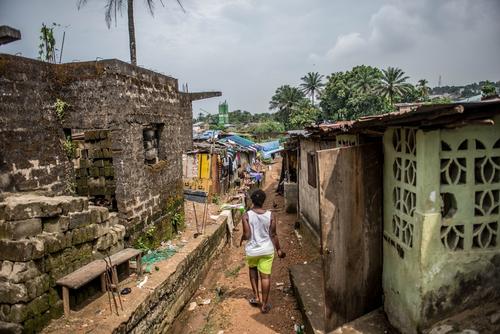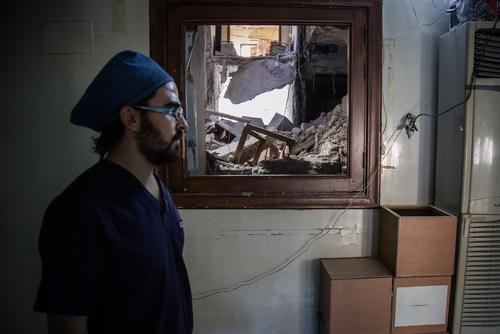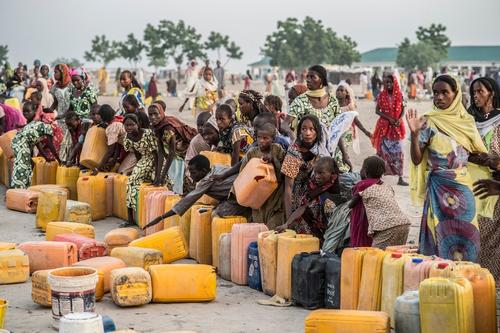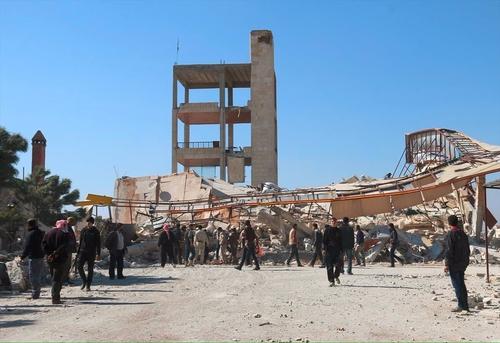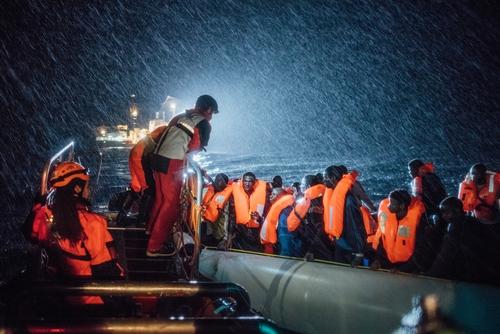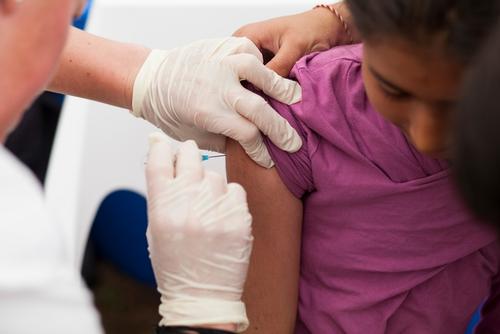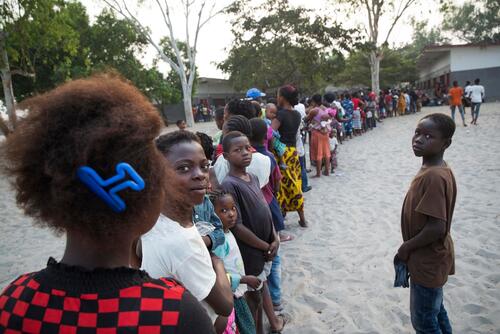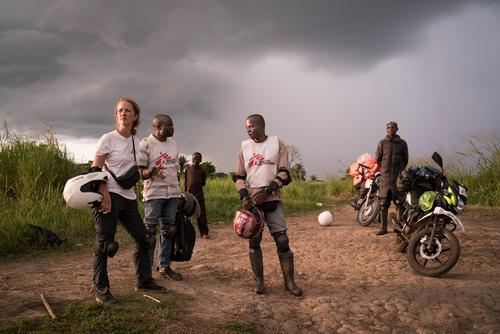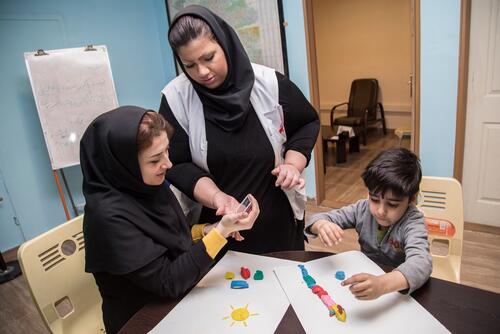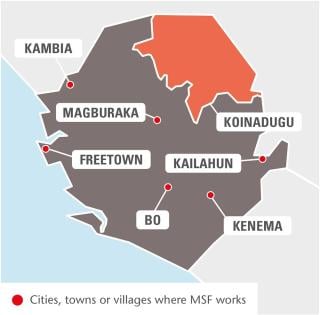
65,200
65,2
28,800
28,8
450
45

300
3
Access to medical care was already limited before the epidemic, and it is estimated that around 10 per cent of the country’s health professionals were among the 3,950 people killed by the virus.
Around 14,000 people were infected with Ebola (suspected, probable and confirmed cases), and some survivors struggled with complications for months afterwards. The survivors’ clinic that Médecins Sans Frontières (MSF) opened in July 2015 was handed over to the Ministry of Health at the end of September 2016. The clinic provided medical treatment and mental healthcare to more than 400 survivors and their families, organising over 450 mental health sessions. The clinic also ran awareness-raising activities promoting safe sex, hand washing and malaria prevention. When survivors reported experiencing stigma, health promoters were deployed to educate their communities about the disease.
In order to retain sufficient emergency response capacity in the event of future disease outbreaks, the Sierra Leone Emergency Response Unit was established. The unit supported the Ministry of Health with infectious disease reporting and emergency response training in three districts, as well as vaccination campaigns, including one for Ebola.
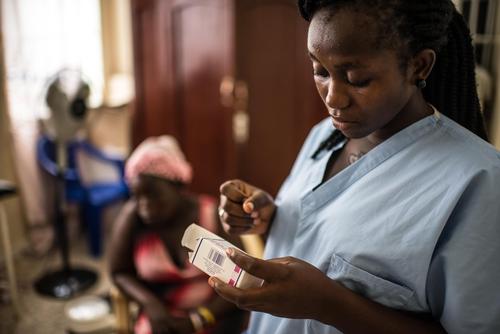
Supporting maternal and child health
Before the epidemic, Sierra Leone had some of the worst health indicators in the world, especially for maternal and child mortality. In Tonkolili district, MSF supports the paediatric ward, maternity and neonatal services and the blood transfusion laboratory at Magburaka district hospital, and also assists Magburaka mother and child health post with staff and supplies. In Yoni Chiefdom (Hinistas), MSF provides emergency obstetric care in a community health centre. In 2016, a total of 21,180 outpatient and 6,245 antenatal consultations were conducted, 2,996 children were admitted to the paediatric ward and 1,457 deliveries were assisted.
In April, MSF started a project in Koinadugu to reduce the maternal, neonatal and child mortality in the district. MSF rehabilitated Kabala hospital, extending the capacity of the paediatric ward from 15 to 45 beds and creating a three-bed neonatal ward. Between April and December, 1,660 children under the age of 12 were admitted for treatment, 148 of them for severe acute malnutrition. Teams provided care to 1,185 pregnant women, assisted 783 deliveries, including 111 caesarean sections, and registered 1,240 people for family planning.
The project also provides healthcare to Ebola survivors – 48 patients are currently being followed up. The team screened 23,197 people for the disease (none tested positive). Screening is also available for malaria and HIV.
Teams in Koinadugu monitor the nutrition situation and respond to emergencies and disease outbreaks. In May, 65,159 children were vaccinated against measles.



